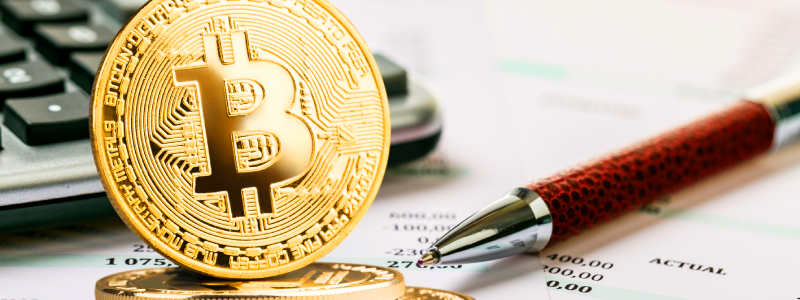Cryptocurrencies are constantly changing and expanding, which can create confusion regarding tax regulations.
This article highlights the five major pitfalls that you should be aware of regarding crypto taxes in Australia. We will debunk some misconceptions and address essential factors related to this asset class.
- The Wash Sale Rule:
A wash sale in the context of crypto assets occurs when an investor sells a crypto asset at a loss and then quickly buys the same or a very similar asset. This practice essentially nullifies the sale and purchase, resulting in no substantial change in the owner’s exposure to the asset. This allows the taxpayer to claim a loss to offset a previously realised or expected gain. However, tax authorities are not favourable towards this approach.
Although the Australian Taxation Office (ATO) has issued tax ruling TR 2008/1, which enables them to deny a loss or tax benefit resulting from a wash sale, its specific applicability to cryptocurrencies has not been clearly defined. According to the tax rule, the wash sale rule pertains to capital gains tax (CGT) assets where there is no significant alteration in the taxpayer’s economic exposure or interest in the asset. Since crypto assets fall under the CGT rules, the wash sale rule is applicable to crypto. The ATO has cautioned that their advanced data analytics can identify wash sales by accessing information from share registers and crypto exchanges. If the ATO detects such activity, they disallow the claimed capital loss, leading to a greater taxable gain or a smaller loss for the taxpayer.
It is permissible to sell your cryptocurrencies at a loss in order to realise any unrealised losses and reduce your tax liability. However, it is important to avoid buying back the same asset immediately, as it can give the appearance of a tax avoidance scheme. Opting to purchase a different cryptocurrency should be acceptable, but there are risks involved if you buy a wrapped version of the same asset or another asset highly correlated to the original one. It is advisable to consult with your accountant for further clarification on this matter.
- The Personal Use Rule
According to the ATO, you can avoid capital gains or losses if you transact with a cryptocurrency considered a personal use asset. A crypto asset is classified as a personal-use asset when it is used to acquire items for personal use or consumption valued at less than $10,000. However, this rule applies only if the cryptocurrency is acquired and immediately used for private purposes. If you use crypto initially intended for investment to purchase personal goods or services, you cannot claim the gains as personal use. The timing of disposal is crucial in determining whether an asset qualifies as personal use. Holding the cryptocurrency for an extended period reduces the likelihood of it being considered a personal-use asset, regardless of eventual use.
- Internal Transfers
The ATO states that transferring cryptocurrency from one digital wallet to another is not taxable as long as you maintain ownership. However, there is a risk that such transfers might be mistakenly categorised as taxable disposals, leading to an overstatement of taxable gains. This can occur when generating tax reports from a single exchange, which is why it is best to engage with a cryptocurrency tax expert to ensure you aggregate all of your wallets to verify internal transfers.
Incorrect reporting might give the impression that you used appreciated crypto to make a purchase, triggering capital gains tax. Transaction fees incurred during internal transfers are taxable disposals as they reduce your overall holdings; if you send 1 ETH to a wallet but only receive .9 ETH due to fees, the .1 ETH is a taxable disposal.
- Crypto Donations and Gifts
When you receive a crypto asset as a gift or donation, it is likely to trigger a capital gains tax (CGT) event when you eventually dispose of it. This means that even though you didn’t exchange money for the asset, it is still considered a disposal event for tax purposes.
Whether you gift or donate crypto assets, it will be seen as a disposal event and is likely to trigger a CGT event. Therefore, you need to calculate your capital gains and report them in your income tax return for the financial year in which the gift or donation was made. This applies whether you are donating to a deductible gift recipient (DGR) or not.
If the value of the crypto asset is $5000 AUD or more, you will need to seek a valuation from the ATO. The ATO’s valuation will be used to determine the disposal value for tax purposes. It’s important to keep a record of your crypto asset transactions, including the date of donation and the market value of the assets at that time. This information will help ensure accurate record-keeping and enable you to provide necessary details to your tax consultant.
It’s crucial to understand that gifting cryptocurrencies is considered a disposal event because the original intention was to hold the cryptocurrency, even without a monetary exchange. Therefore, it may be subject to either ordinary income tax or capital gains tax. If the recipients of the gifted cryptocurrency later dispose of it, they will be subject to capital gains tax.
To ensure compliance with tax regulations, it is recommended to maintain accurate records of your crypto asset transactions and seek advice from a tax consultant. By keeping track of dates, values, and other relevant details, you can navigate the tax implications of gifting or donating crypto assets more effectively.
- Crypto-to-Crypto Transactions are Taxable
Crypto-to-crypto transactions are subject to taxation since cryptocurrencies are considered digital assets. When you exchange or swap one crypto asset for another, it is treated as a taxable event. This means that you dispose of your original crypto asset and acquire a new one, resulting in a capital gains tax (CGT) event. It’s important to note that you receive property instead of money, so the market value of the cryptocurrency must be calculated in Australian dollars.
There is a common misconception among taxpayers that cryptocurrency is only taxable when converted into Australian dollars. However, every trade involving crypto assets is a taxable transaction and is subject to CGT. While there is a higher risk of scrutiny from the ATO when converting into fiat currency, as it requires going through a KYC exchange, it’s crucial to understand that all trades, including crypto-to-crypto transactions, have tax implications.
Tracking all your transactions manually with a spreadsheet can be time-consuming and prone to errors, especially when dealing with complex transactions across multiple platforms. By consulting your tax advisor, this process doesn’t have to be overly complicated. A great tax advisor should provide you with a comprehensive report that adheres to ATO tax guidelines for cryptocurrencies ensuring compliance and saving you valuable time and effort.
In addition to the insights in this article, Fullstack Advisory can be your reliable tax advisor to navigate the challenges mentioned. We provide comprehensive tax advice, helping individuals and businesses underst
Was this article helpful?
Related Posts
- Cryptocurrency Mining Taxes
If you're currently mining crypto, it's important to learn how cryptocurrency mining is taxed. This…
- Tax Treatment of Cryptocurrency Exchanges in Australia
Crypto currency exchanges are critical to the crypto market ecosystem — but how are they…
- Equity Crowdfunding in Australia
Crowdfunding is making some big waves in recent times - we cover why many founders…
- Crypto Key Management: Keeping Your Cryptocurrency Safe
Cryptocurrency key management can be complicated. Here’s what you need to know to keep your…

















